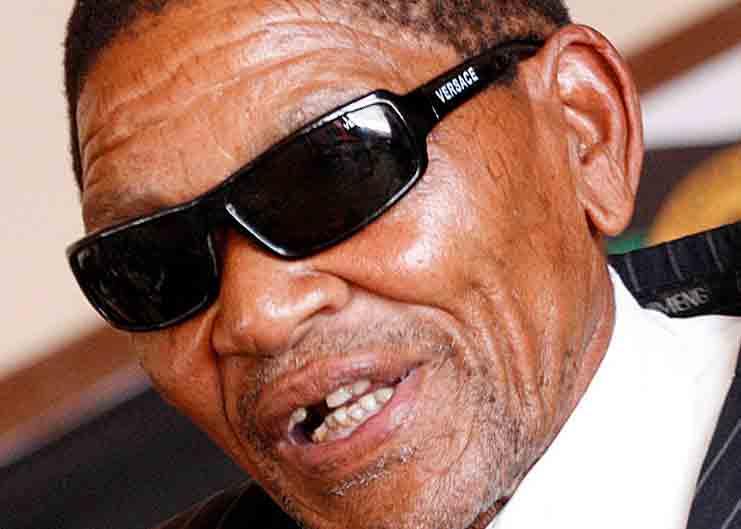- Activist Roy Sesana calls an emergency meeting with BaSarwa in the CKGR
- US-based Kalahari People’s Fund urges BaSarwa “to go back to the land”
- Activist Jumanda Gakelebone says the Coronavirus has hit the core of their culture
TEFO PHEAGE
The upsurge of the Coronavirus pandemic has thrown the BaSarwa community into confusion as it offends against their core principles and strategies of survival and threatens to wipe them out, Basarwa leaders have said.
Last week, BaSarwa rights activist Roy Sesana convened a crisis meeting in the Central Kalahari Game Reserve (CKGR) to speak to his tribesmen about the pandemic and its ramifications. Sesana confirmed the meeting to The Botswana Gazette, saying he had heard about the pandemic while in Gantsi and rushed to the CKGR to inform his people about it.
“I convened the meeting in the CKGR and informed our people about the pandemic,” he said. “I gave them the prevention guidelines which were read out and translated by my son.”
He expressed concern that it seems the government does not have a plan of engagement with the BaSarwa community about the pandemic, saying BaSarwa are a special tribe that needs patient but robust engagement.
Sesana noted that there is a higher level of both nosophobia and hypochondria – which is fear of specific diseases and fear that existing symptoms may be the result of an undiagnosed disease – than is the case among other communities. These fears, he pointed out, were heightened by the paucity of indigenous medicine men and knowledge among them over the years.
“We are vulnerable nowadays because our herbalists have died,” Sesana said. “The young ones are clueless and useless. I used to be one of the skilled herbalists but I am now a converted member and pastor of the Zion Christian Church. They have thrown all I had away.”
Another renowned BaSarwa rights activist, Jumanda Gakelebone, said the Coronavirus has hit their tribe at the very core of its existence. “BaSarwa are a social tribe and their basic survival strategies are all about being together in large groups to lift each other up and share the little that has been gathered,” he said, adding that the isolation and social distancing prevention guidelines will take away a part of their nature.
This is reiterated by the director of Botswana Khoedom Council, Keikabile Mogodu, who says BaSarwa are a sharing people. “It is their culture to share among themselves,” Mogodu said. “If this is not adequately addressed, it may lead to the spread of COVID-19 within the community.”
Mogodu appealed to the government to regularly visit the communities in their remote areas to teach them about the pandemic. “The government and stakeholders should reach out to the farms where BaSarwa are mostly concentrated and provide education and the necessary resources,” he said. “They should engage the farm masters on a regular basis to come up with measures to curb the spread.”
Meanwhile, the Kalahari People’s Fund (KPF), a US-based San advocacy organisation formed for the benefit of BaSarwa and other peoples of the Kgalagadi Desert region of Southern Africa, has urged BaSarwa “to go back to the land.” In a leaked controversial email, the organisation’s director Megan Biesele writes: “Kalahari Peoples Fund (KPF) hope you have received the English version of COVID-19 guidelines and are doing local translations. We feel there is an even more important message you should receive from us next. We encourage you to go back to the land during the virus crisis, to avoid infection in towns.
“San people in Botswana like Roy Sesana and Jumanda Gakelebone are going back to the CKGR. People in Qarinxago, across the Botswana border from Tsumkwe, are being encouraged to isolate themselves there and not go to Qangwa town. Back-to-the-land movements may be going on in other places we don’t know about. Not everybody has a place to go back to, but those who can, please go soon. National supply shortages of food are already occurring, drought relief food and old-age pensions may not show up either, because trucking may be interrupted.”
But at the local government level, the Chairperson of Gantsi District Council, Thato Tshweneyagae, said he was not in a position to discuss the matter and referred this publication to the Council Secretary who was said to be in a day-long meeting yesterday (Monday). The District Commissioner, Mooketsi Lesetedi, said BaSarwa are not any different from other tribes or communities within his district and so will be treated the same way as others.




